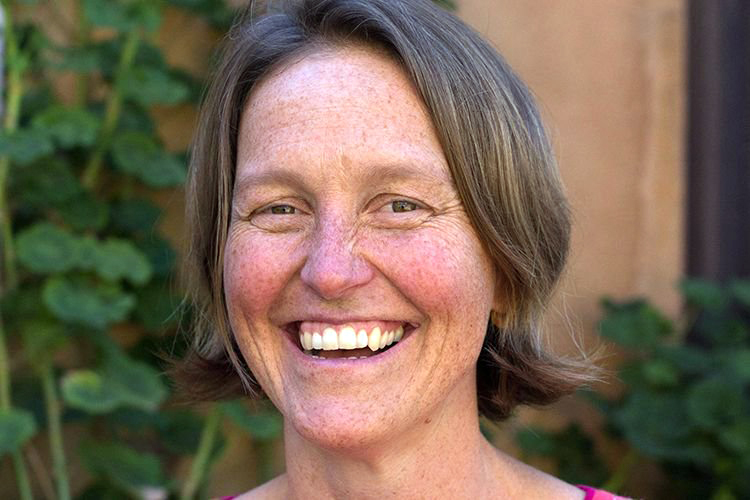Berkeley Talks: Emiliana Simon-Thomas on where happiness comes from
The science director of UC Berkeley's Greater Good Science Center, discusses happiness — what it means, where it comes from and how we can enhance it in our lives — during a Science at Cal lecture
August 27, 2021
Subscribe to Berkeley Talks, a Berkeley News podcast that features lectures and conversations at UC Berkeley.

Emiliana Simon-Thomas is science director of the Greater Good Science Center at UC Berkeley. (UC Berkeley photo)
In episode #122 of Berkeley Talks, Emiliana Simon-Thomas, science director of UC Berkeley’s Greater Good Science Center, discusses happiness — what it means, where it comes from and how we can enhance it in each of our lives — during a Science at Cal lecture on July 28, 2021.
“Where does happiness come from?” asks Simon-Thomas, who co-teaches the Science of Happiness, an online course that explores the roots of a happy and meaningful life. “Humans have been wondering this for centuries. Early thought and philosophy on happiness was that it was just luck. It was divine favor. It was in the stars whether or not you ended up a happy person or not.”
The Greeks and Romans, she says, had the idea that happiness was tied to how virtuous a person was. In another stretch of history, people believed that happiness was about maximizing pleasure and avoiding pain. And then, finally, and perhaps the most recent thinking, she says, is that happiness comes from social connection, from feeling a sense of belonging and community.
“There’s some really compelling neuroscience studies that show that if we are isolated,” she says, “this actually engages pathways and structures in our brain that signal vigilance to threat. So, being alone, being isolated, is actually not a safe state for the average human.”